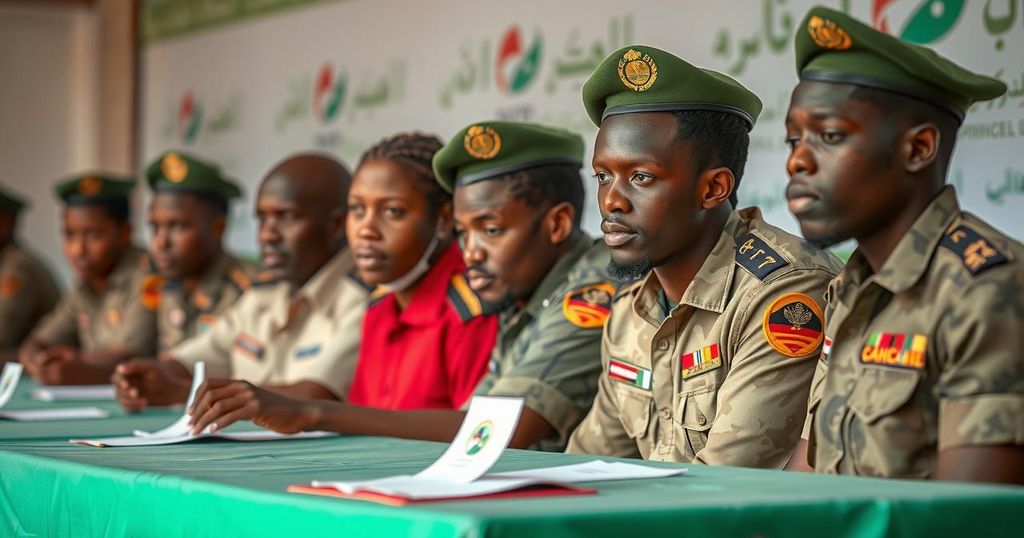Chad’s general election, critical for transitioning back to civilian rule after military governance, experienced low turnout amid opposition-led boycott calls. While President Deby urged participation, many voters reported apathy, doubting the election’s legitimacy. Incidents of ballot discrepancies raised further concerns, underscoring the challenges facing Chad as it navigates a return to democracy amidst regional tensions.
Chad held a general election deemed crucial by the government for the return to civilian rule after three years under military authority. However, voter turnout was markedly low, with midday estimates showing only 38 percent participation, following calls for a boycott by opposition groups who argued that the election outcome was predetermined. Success Masra, leader of the opposition Transformers party, noted that the majority of citizens heeded the boycott call, expressing satisfaction with the low turnout.
Conversely, President Mahamat Idriss Deby Itno encouraged citizens to vote, branding the day as “historic” and asserting the importance of widespread civic participation. While disenfranchised voters expressed skepticism regarding the validity of the electoral process, some hoped for change, particularly in terms of job creation and justice. Reports indicated a high turnout among military personnel and nomads, yet opposition parties highlighted incidents of electoral malpractice, including missing ballots before voting commenced.
Despite these challenges, polling stations, observed by foreign monitors and political representatives, remained open in the face of ongoing threats, such as the Islamic extremist group Boko Haram. The government framed these elections as the final milestone towards reinstating democracy after Deby’s ascendance to power following his father’s long-standing rule.
Chad’s situation is further complicated by regional conflicts, particularly concerning Sudan, and declining relations with former colonial power France. While the elections were promoted as a transition to democracy, the presence of systemic voter apathy and allegations of fraud cast doubt on their legitimacy and effectiveness in addressing the citizens’ pressing needs and grievances.
The current elections in Chad are a response to previous military-led governance following the death of former President Idriss Déby, who ruled the nation for 30 years. President Mahamat Idriss Deby Itno has been in power since 2021, and the government portrays these elections as a vital step towards democracy. However, opposition voices claim that the electoral process lacks credibility, citing predetermined outcomes and urging citizens to abstain from voting as a form of protest against the current regime. The historical context of political instability and ongoing regional conflicts enhances the complexity surrounding these elections and their outcomes.
In conclusion, the general election in Chad, portrayed by the government as pivotal for the country’s democratic transition, faced significant challenges marked by widespread voter apathy due to opposition boycotts and allegations of election fraud. Despite government calls for participation, the reality on the ground reflects a populace disillusioned with the political process. The international community remains watchful as these elections may influence Chad’s future stability and governance on a regional scale. The developments will be crucial for understanding the path forward for Chad amidst its complex political landscape and security challenges.
Original Source: www.hudsonvalley360.com






